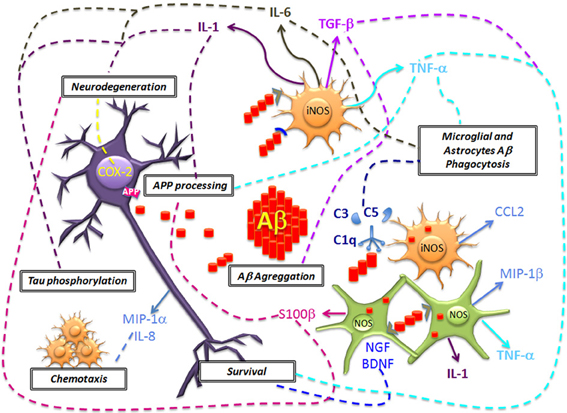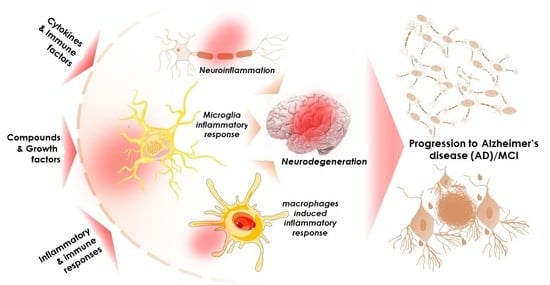Reference




Reference




Moonshot's Answer
Proinflammatory cytokine levels differ significantly between vascular injury and Alzheimer's disease (AD). In Alzheimer's disease, studies have shown elevated levels of pro-inflammatory cytokines such as IL-1β, IL-6, IL-10, TNF-α, and TGF-β in patient tissues and cerebrospinal fluid (CSF) [1][2][3]. However, some studies suggest that in mild-to-moderate AD, these proinflammatory cytokines are lower than in patients with vascular-dependent dementia [4]. In contrast, levels of pro-inflammatory cytokines in vascular injury are higher than those observed in mild-to-moderate AD [5]. Notably, IL-17 and IL-23 levels are significantly higher in Alzheimer's disease patients compared to controls and vascular dementia patients [6]. Anti-inflammatory cytokines, such as IL-1ra, IL-33, and IL-10, are significantly increased in the CSF and plasma in AD, which may help reduce neuroinflammation [7]. These findings indicate a complex role of cytokines in both conditions, with distinct patterns of cytokine expression that could potentially be used as biomarkers for diagnosis and therapeutic management [8][9].
 Figure showing cytokine levels in Alzheimer's disease [1]
Figure showing cytokine levels in Alzheimer's disease [1]
 Figure showing cytokine levels in vascular injury [2]
Figure showing cytokine levels in vascular injury [2]
References: [1] - Brain cytokines and disease | Acta Neuropsychiatrica [2] - The Potential Role of Cytokines and Growth Factors in the ... - MDPI [3] - Inflammatory process in Alzheimer's Disease - Frontiers [4] - Proinflammatory cytokines in sera of elderly patients with dementia [5] - A Meta-Analysis of Cytokines in Alzheimer's Disease - ScienceDirect [6] - levels of proinflammatory cytokines il-17 and il-23 in patients with ... [7] - Roles of Cytokines in Alzheimer's Disease - MDPI [8] - Role of pro-inflammatory cytokines in Alzheimer's disease and ... [9] - Role of pro-inflammatory cytokines released from microglia in ...